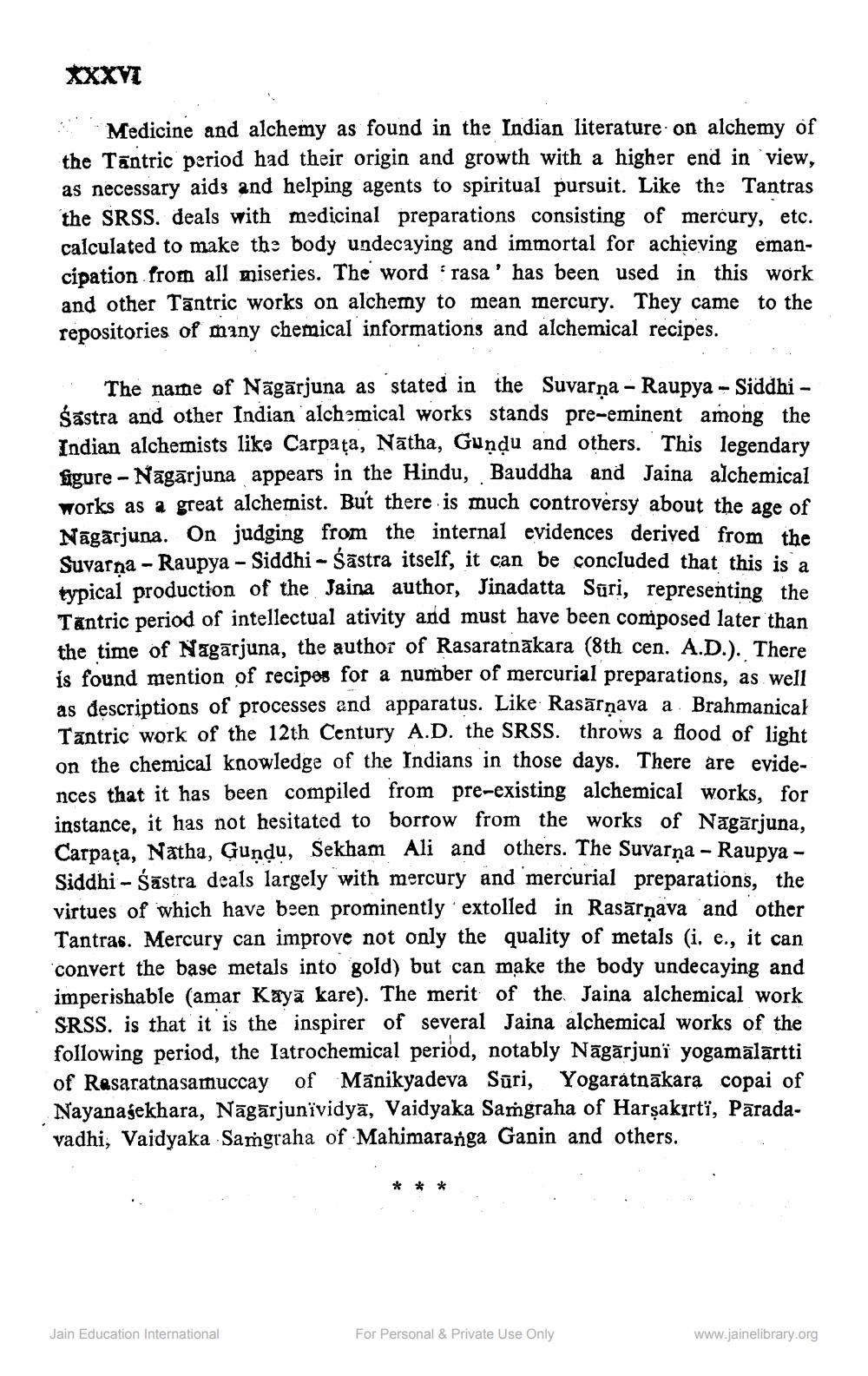________________
XXXY
Medicine and alchemy as found in the Indian literature on alchemy of the Tantric period had their origin and growth with a higher end in view, as necessary aids and helping agents to spiritual pursuit. Like the Tantras the SRSS. deals with medicinal preparations consisting of mercury, etc. calculated to make the body undecaying and immortal for achieving emancipation from all miseries. The word 'rasa' has been used in this work and other Tantric works on alchemy to mean mercury. They came to the repositories of many chemical informations and alchemical recipes.
The name of Nāgārjuna as stated in the Suvarna - Raupya - Siddhi - Śastra and other Indian alchemical works stands pre-eminent among the Indian alchemists like Carpața, Nātha, Guņņu and others. This legendary figure - Nāgārjuna appears in the Hindu, Bauddha and Jaina alchemical works as a great alchemist. But there is much controversy about the age of Nāgārjuna. On judging from the internal evidences derived from the Suvarna - Raupya - Siddhi - Šāstra itself, it can be concluded that this is a typical production of the Jaina author, Jinadatta Sūri, representing the Tantric period of intellectual ativity and must have been composed later than the time of Nagarjuna, the author of Rasaratnakara (8th cen. A.D.). There is found mention of recipos for a number of mercurial preparations, as well as descriptions of processes and apparatus. Like Rasārņava a Brahmanical Tantric work of the 12th Century A.D. the SRSS. throws a flood of light on the chemical knowledge of the Indians in those days. There are evidences that it has been compiled from pre-existing alchemical works, for instance, it has not hesitated to borrow from the works of Nāgārjuna, Carpata, Natha, Gundu, Sekham Ali and others. The Suvarna - Raupya - Siddhi - Šāstra deals largely with mercury and mercurial preparations, the virtues of which have been prominently extolled in Rasārņava and other Tantras. Mercury can improve not only the quality of metals (i. e., it can convert the base metals into gold) but can make the body undecaying and imperishable (amar Kayā kare). The merit of the Jaina alchemical work SRSS. is that it is the inspirer of several Jaina alchemical works of the following period, the latrochemical period, notably Nāgārjunî yogamālārtti of Rasaratnasamuccay of Mānikyadeva Sūri, Yogarátnakara copai of Nayanasekhara, Nāgārjunïvidyā, Vaidyaka Samgraha of Harșakırtï, Pāradavadhi; Vaidyaka Samgraha of Mahimaranga Ganin and others.
Jain Education International
For Personal & Private Use Only
www.jainelibrary.org




